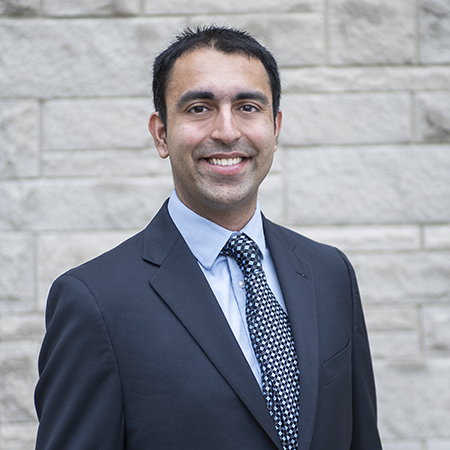Call for Papers and Submission Guidelines
The irreversible dependence on computing technology has paved the way for cybersecurity’s rapid emergence as one of modern society’s grand challenges. To combat the ever-evolving, highly-dynamic threat landscape, numerous academics and industry professionals are systematically searching through billions of log files, social media platforms (e.g., Dark Web), malware files, and other data sources to preemptively identify, mitigate, and remediate emerging threats and key threat actors. Artificial Intelligence (AI)-enabled analytics has started to play a pivotal role in sifting through large quantities of these heterogeneous cybersecurity data to execute fundamental cybersecurity tasks such as asset management, vulnerability prioritization, threat forecasting, and controls allocations. Indeed, the recent advances in AI-enabled analytics techniques such as Large Language Models (LLMs), self-supervised learning, graph neural networks, and others offer ripe opportunities for defenders to enhance their cybersecurity capabilities. To this end, this workshop aims to convene academics and practitioners (from industry and government) to share, disseminate, and communicate completed research papers, work in progress, and review articles about AI-enabled cybersecurity analytics. Areas of interest include, but are not limited to:
- IP reputation services (e.g., blacklisting)
- Anomaly and outlier detection
- Phishing detection (e.g., email, website, etc.)
- Dark Web analytics (e.g., multi-lingual threat detection, key threat actor identification)
- Spam detection
- Large-scale and smart vulnerability assessment
- Real-time threat detection and categorization
- Real-time alert correlation for usable security
- Weakly supervised and continual learning for intrusion detection
- Adversarial attacks to automated cyber defense
- Automated vulnerability remediation
- Internet of Things (IoT) analysis (e.g., fingerprinting, measurements, network telescopes)
- Misinformation and disinformation
- Deep packet inspection
- Static and/or dynamic malware analysis and evasion
- Automated mapping of threats to cybersecurity risk management frameworks
- Robustifying cyber-defense with deep reinforcement learning or adversarial learning
- Automatic cybersecurity plan or report generation
- AI-enabled open-source software security
- Analyst-AI interfaces and augmented intelligence for cybersecurity
- Large language models for automated threat report generation
- Large language models for open source software security
- Large language models for adversarial attack (e.g., malware, phishing) generation and defense
- Model verdict explainability in security applications
- Privacy preserving security data collection and sharing
- Concept drift detection and explanation
- Interactive machine learning for security
- Few-shot learning for security applications
- Resource constrained machine learning
Each manuscript must clearly articulate their data (e.g., key metadata, statistical properties, etc.), analytical procedures (e.g., representations, algorithm details, etc.), and evaluation set up and results (e.g., performance metrics, statistical tests, case studies, etc.). Providing these details will help reviewers better assess the novelty, technical quality, and potential impact. Making data, code, and processes publicly available to facilitate scientific reproducibility is not required. However, it is strongly encouraged, as it can help facilitate a data/code sharing culture in this quickly developing discipline.
All submissions must be in PDF format and formatted according to the new Standard ACM Conference Proceedings Template. Submissions are limited to a 4-page initial submission, excluding references or supplementary materials. Upon acceptance, the authors can include an additional page (5-page total) for that camera-ready version that accounts for reviewer comments. Authors should use supplementary material only for minor details that do not fit in the four pages but enhance the scientific reproducibility of the work (e.g., model parameters). Since all reviews are double-blind, author names and affiliations should NOT be listed. For accepted papers, at least one author must attend the workshop to present the work. Based on the reviews received, accepted papers will be designated as a contributed talk (four total, 15 minutes each) or as a poster. All accepted papers will be posted on the workshop website but will not be included in the KDD Proceedings.
Agenda
This workshop will be held on Monday, August 26th from 9:00 AM – 1:00 PM Spanish time.
Room 121, AC Hotel Barcelona Forum
An agenda for the workshop is as follows:
| Time | Session |
| 9:00 - 9:10 am | Opening Remarks by Workshop Co-Chair(s) |
| 9:10 - 10:00 am | Paper Presentation 1: Privacy Preservation and AI Safety (25 min per paper including questions) 9:10 - 9:35 am A Privacy-Preserving Federated Learning Framework for Robust Intrusion Detection in Decentralized Networks Using Packet Data. Quoc H. Nguyen, Soumyadeep Hore, Ankit Shah, Trung Le, and Nathaniel D. Bastian. (Paper) 9:35 - 10:00 am Can Reinforcement Learning Unlock the Hidden Dangers in Aligned Large Language Models? Mohammad Bahrami Karkevandi, Nishant Vishwamitra, and Peyman Najafirad. (Paper) |
| 10:00 - 10:20 am | Break 1 |
| 10:20 - 11:10 am | Paper Presentation 2: AI-enabled Operational Cybersecurity (25 min per paper including questions) 10:20 - 10:45 am Reducing False Alerts in Cybersecurity Threat Detection Using Generative AI. Xiao Lin, Glory Avina, and Javier Santoyo. (Paper) 10:45 - 11:10 am Text2Weak: Mapping CVEs to CWEs Using Description Embeddings Analysis. Stefano Simonetto, Ronan Oostveen, Thijs van Ede, Peter Bosch, and Willem Jonker. (Paper) |
| 11:10 - 11:30 am | Break 2 |
| 11:30 - 12:00 pm | Short Paper Presentations (15 min per paper including questions) 11:30 - 11:45 am Towards Enhanced IoT Security: Advanced Anomaly Detection using Transformer Models. Natalia Sánchez, Albert Calvo, Santiago Escuder, Josep Escrig, Jordi Domenech, Nil Ortiz, and Saber Mhiri. (Paper) 11:45 - 12:00 pm Reaping the Whirlwind: Insider Information Leakage and Reciprocal Loyalty. |
| 12:00 - 12:50 pm | Open Discussion Emerging Topics in AI4Cyber, including NSF CAE-AI, NIST ARIA, NIST AI RMF, and MITRE ATLAS |
| 12:50 - 1:00 pm | Closing Remarks |
Key Dates
- Workshop Paper Submission: June 4th, 2024
- Workshop Paper Notification: June 28th, 2024
- Workshop Date: August 26th, 2024
Submission Site
Submission Site: Easy Chair Submission
Workshop Co-Chairs

Dr. Sagar Samtani
Indiana University

Dr. Jay Yang
Rochester Institute of Technology

Dr. Hsinchun Chen
University of Arizona

Dr. Ben Ampel
Georgia State University

Dr. Steven Ullman
University of Texas, San Antonio
Program Committee (listed alphabetically based on last name)
- Ali Ahmadzadeh, Blue Hexagon
- Richard Biever, Office of Information Technology, Duke University
- Victor Benjamin, Arizona State University
- Arridhana Ciptadi, TruEra
- Reza Ebrahimi, University of South Florida
- Erick Galinkin, Rapid7
- Yang Gao, Indiana University, Bloomington
- Nasir Ghani, University of South Florida
- Hardik Gohel, University of Houston
- Sven Krasser, Crowdstrike
- Ben Lazarine, Indiana University, Bloomington
- Kim Milford, REN-ISAC, Indiana University
- Sudip Mittal, University of Mississippi
- Dongwon Lee, Pennsylvania State University
- Weifeng Li, University of Georgia
- Xiaojing Liao, Indiana University, Bloomington
- Brian Pendleton, Deloitte
- Edward Raff, Booz Allen Hamilton, and University of Maryland, Baltimore County
- Ankit Shah, University of South Florida
- Paulo Shakarian, Arizona State University
- Sicco Verwer, TU Delft
- Matthew Wright, Rochester Institute of Technology
- Fanny Ye, University of Notre Dame
- Michael Zentner, San Diego Supercomputer Center, University of California at San Diego
- Ziming Zhao, University of Buffalo
- Lina Zhou, University of North Carolina, Charlotte
- Hongyi Zhu, University of Texas, San Antonio